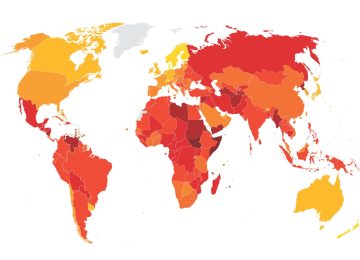By Manish Kumar
Today, the expectation from all countries is to pursue economic growth and meet the needs of the present without compromising the ability of future generations to meet their own needs and ensure the well-being of their citizens. A sustainable development which can ensure that the pursuit of today’s development does not put burden on the future generation can be achieved by adopting “Sustainable Development Goals (SDGs).”
Environmental, Social, and Governance (ESG) practices help attain such sustainability. ESG, at its core, comprises a set of factors used to measure the non-financial impacts of a company’s operations and, from an investor’s perspective, helps evaluate the quality of investments with respect to a broad range of socially desirable ends.
Within ESG, the “E” captures aspects related to carbon footprint, greenhouse gas emissions, deforestation, biodiversity, climate change and pollution mitigation, waste management and water usage. The “S” covers labor standards, wages and benefits, workplace diversity, pay equity, human rights, talent management, community relations, health and safety, supply-chain management and social justice issues. And the “G” covers governing of the “E” and the “S” categories through the evaluation of a corporate board’s structure, its strategic oversight on sustainability and compliance with the laws of the land.
For developing economies like India, all three, E, S and G are important. As part of assuming the Presidency of G20, India adopted the theme of One Family, One Earth, One Future, which encompasses all three pillars of ESG. With the increasing spotlight on climate change and environmental issues that are adversely affecting human lives, it is incumbent upon corporates to not de-focus on social aspects which look at its relationships with internal and external stakeholders. In fact, it may be argued that the social crisis could become more onerous due to the impact of climate change, and policies should also address the support and upliftment of communities and/or marginalised groups as part of the plan to decarbonise and transition to a low-carbon economy. Further, most ESG evaluation approaches attribute a relatively higher weightage to social factors as compared to E. Hence, the importance of the social pillar of ESG cannot be undermined.
Social parameters enable assessment of a company’s virtuous behavior – or otherwise. The evaluation encompasses an organisation’s policies, frameworks as well as practices, on the ground.
The three main sets of counterparties for the assessment of social factors comprise of:
- Employees – right balance between remote and in-office work, identifying skill gaps and investing in employee development, prioritizing mental health initiatives, actively promoting a diverse and inclusive workplace;
- Customers – appropriateness of the product for the end user, being transparent and fair to the customer, customer relationship management, privacy protection;
- Communities – a host of corporate social responsibility activities like supporting livelihoods, upliftment of the society’s underserved strata, supporting healthcare, sanitation and education meet these requirements.
It is important to understand that companies are evaluated differently and probably with varying degree of rigour based on the sectors in which they operate. For example, parameters like occupational health and safety could be more relevant to manufacturing companies than to service sector companies. A company’s disposition on aspects like waste disposal, water use and circularity, providing/supporting healthcare, education could also differ. On the other hand, measures on staff training and upskilling, equality and diversity are relevant to all sectors. Similarly, customer expectations on product quality, service delivery, and sustainable practices could vary amongst regions and political boundaries. An appropriate understanding of the minimum regulatory requirements as well as societal beliefs and preferences would clearly set apart the more responsible organisations from others.
There is a common misperception that achieving CSR or Corporate Social Responsibility means achieving ESG objectives. It may be noted that CSR and ESG share DNA but they are not twins. ESG factors are, actually, used to measure a company’s level of maturity in CSR performance. The extant regulatory requirement under the Companies Act in India, is probably the only one in the world which provides a framework and standardised approach to corporates to fulfil their social obligations to the communities on whom they may be dependent or with which they work to meet some of their business objectives.
For sustainable development, the government policy framework and the administration ecosystem must facilitate the understanding of the basic requirements and enable the making of a business case for these initiatives from an ESG perspective. Enterprises need to adopt sustainable social practices to ensure business continuity and avoid risk of any disruption leading to undesirable consequences. For example, companies which are related to and dependent on agriculture produce should review their business approach to support climate-smart and regenerative agriculture practices or help the transition from use of chemical fertilisers to organic fertilisers to ensure sustainable business operations.
Access to responsible finance is an imperative to support and scale up such initiatives. The BFSI sector must put in place enabling frameworks and policies to channelise funds for the above-mentioned areas and activities. Indian entities have raised social loans and bonds for the purpose of addressing social issues in healthcare, education, poverty alleviation, sanitation, etc. The first social impact bond in India was issued in 2020 by Pimpri Chinchwad Municipal Corporation (PCMC) in Pune co-created by the United National Development Programme (UNDP). In FY2023, State Bank of India garnered about $1 billion through an internationally syndicated loan, tagged as Asia Pacific’s second-largest issuance in the social space.
In FY2024, NABARD issued India’s first AAA-rated social impact bond to garner a little more than Rs 10.00 billion. As part of these funds rise, there are stipulations for monitoring end-use of the funds. Third-party assurance or certification, impact assessment reports are also being adopted as there are challenges like limitations in data availability, and lack of benchmarks since social metrics are highly context driven and could be non-standard. The lenders, in turn, as part of the pre-lending evaluation, undertake enhanced due diligence to ensure that potential risks to return of capital are mitigated. As trustees of public money, banks and FIs owe this to their depositors.
Another requirement from stakeholders like investors and regulators, that is increasingly becoming mainstream, is for enterprises to make disclosures about their social initiatives. Preferred avenues are the companies’ website, as part of annual financial statements or part of the ESG or Sustainability report. In India, the capital markets regulator, Securities and Exchange Board of India (SEBI) has mandated the top 1,000 listed companies to annually publish a Business Responsibility & Sustainability Report (BRSR). About 40% of the about 150 reportable indicators are around the social factors. It may be noted that the BRSR is structured around National Guidelines on Responsible Business Conduct which draws from various internationally acceptable reporting frameworks like GRI, SDG, SASB, CDP, TCFD.
It is advisable that organizations remain focussed on social parameters of ESG despite its evolution over time. As more fundraises happen and enhanced disclosure requirements get mandated globally, corporate executives, investors and regulators will gain confidence in the reliability and maturity of social impact programs. Other market participants, including sustainability coordinators and second opinion providers, should support collective action and elevate their focus on social metrics to set the bar for others. The renowned management consultant, Peter Drucker, coined the phrase ’That which gets measured gets managed”. This phrase encapsulates the idea that quantifying and tracking aspects of our endeavors is essential for improvement and success, especially in evolving areas like ESG.
Manish Kumar is the Head, ESG & CSR, ICICI Bank Ltd
*** Views expressed are personal











A very informative article, written in a simple and effective style. Brilliant!